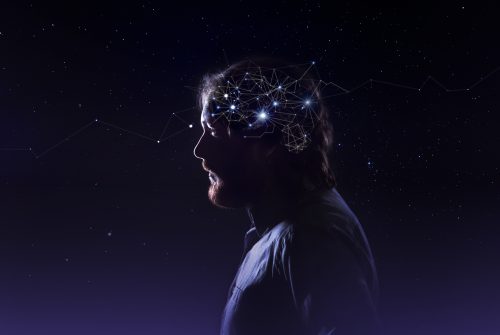The Godfather in the Internet age
13 March 2018 | Written by Andrea Geremicca

Thanks to successful films like The Godfather or The Sopranos, many of us associate organized crime with huge and powerful families, often ruled by charismatic bosses like Vito Corleone or Tony Soprano. However, reality is very different. The “don”, the “bosses” and the “henchmen” have been replaced by freelancers, hackers and technology experts. Today the new criminal organizations are more like a Startup than a family.
The technological acceleration we are experiencing today is incredible, the impact of exponential technologies on our society has revolutionized many aspects of our lives. Some markets have changed, others have disappeared, others have been born and grown in very fast times.
But what happened to the world of crime?
To survive the technological wave, criminals have had to innovate. Traditional groups like Cosa Nostra, Ndrangheta or Yakuza have opened new departments of Cyber Crime and today they hire programmers, developers and hackers, buy servers and do not place bombs anymore, but malware. Forget the hacker’s image from Hollywood movies: teenagers marginalized by society who spend entire days in front of the PC, in basements or in their parents’ garage are just a distant and naive memory. Today, 40% of hackers associated with criminal activities are over 35 years old, wearing designer clothes and driving luxury cars.
Moreover, the collaboration between hackers and organized crime is more than a hypothesis, it is a fact. A study by the Rand Corporation shows that while in the past 80% of the hackers were single and independent workers (freelancers), today more than 80% of them work for criminal groups.
The speed with which the crime has sensed the change taking place, investing in new technologies, is not surprising, indeed often the same criminals have been “early adopters” of many new inventions. When the cops ran on foot or on horseback, the American gangsters escaped away with the first cars and when the policemen fired a six-shot revolver, they responded with automatic weapons. Furthermore, drug traffickers were among the first to have cell phones and the precursors of drone use.
Thanks to special drones equipped with thermal sensors, in fact, they could fly over the buildings of the city and find out where the rival cartels used to grow drugs (many lamps are needed to grow the marijuana, and for this reason the temperature in the apartments where it is grown is higher compared to the average).
The advent of the internet has made life easier for more than a few criminals, especially the kidnappers. In Mexico City, for example, the increase in kidnappings is linked to smartphone technology and the possibility of using them in a precise location: the airport. Imagine being a kidnapper, you are at the airport looking for some rich manager from the United States or Germany: a perfect target, probably alone, foreign and full of money, but how to figure out which of those managers has the highest ROI? Easy, just read the names written on the signs of the drivers waiting for them at the airport and check on Google their role and the company they work for. Having found the manager with the most prestigious position (or working with the richest company), it is enough to threaten the driver, take his sign, wait for the target, and you’re done.
I could go on with many more examples, from how prostitutes take advantage of Airbnb, to how dealers accept virtual payments with Square. But I believe you understand: modern criminals, in order to survive changes, have had to learn new technologies, modify methods, techniques and habits.
What is the first thing you check when you book a hotel, when you choose a restaurant or when you buy on Amazon or eBay? Probably feedback. We live in an era where “digital reputation” is fundamental, especially in business. Who buys an object that has a star in five? Who buys from a seller who has terrible feedback? Who chooses a restaurant that has bad reviews? Let’s face it, who today wants to do business must have a perfect digital reputation, even if he is a criminal.
Many times, during Impactscool’s workshops in the Universities, we talk about Silk Road, an e-commerce (closed by FBI in 2013) dedicated to illegal products. The site, for obvious reasons, was not reachable by typing the URL, but only by browsing in the so-called Dark Web, a part of the immense Deep Web that is accessed in an anonymous way, using some programs that guarantee incognito browsing mode, such as TOR. Silk Road worked like any e-commerce: you were looking for the product, you found the retailer and ended the negotiation by paying in Bitcoin (for this reason, even today, Bitcoin is often associated with crime). The most interesting part of the process was that, once you received your product (such as weapons, drugs, medicines), you could give feedback to your Digital Pusher: if he had cheated you, other users would have known and would have avoided contact to him. After two or three negative feedbacks, administrators could even revoke the sales license to the seller.
The closure of Silk Road did not stop the traffic of illicit products online. In the last three years, in fact, hundreds of new illegal markets have opened their doors on the Dark Web. Among those still active, the most famous are Dream Market, Valhalla, Zion, WallStreet Market: all portals that share the same system of reviews and feedback introduced by Silk Road.
After all, as the famous writer Terry Pratchett said: “If you were going to be successful in the world of crime, you need a reputation of honesty”.





